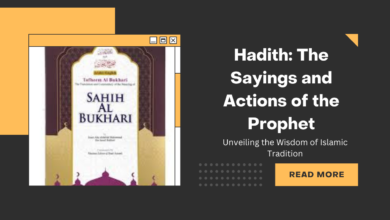
Is life insurance Halal in Islam?
The permissibility of life insurance in Islam is a subject of debate among scholars. Some consider certain types of life insurance permissible, while others view it as not compliant with Islamic principles.

Introduction
Life insurance is a financial arrangement that offers protection and financial support to individuals and their families in the event of death or certain critical circumstances. However, the permissibility of life insurance in Islam has been a subject of debate among scholars and Muslims around the world. The issue revolves around principles of risk-sharing, uncertainty, and the prohibition of interest (riba) that are central to Islamic finance. In this article, we will delve into the arguments on both sides and attempt to provide a balanced understanding of whether life insurance is halal (permissible) or haram (forbidden) in Islam.
Islamic Principles and Financial Transactions
Islamic finance is grounded in Shariah principles, which provide guidelines for ethical and equitable financial dealings. Some key principles relevant to the discussion of life insurance include:
- Risk-Sharing (Mudarabah): Islam encourages mutual support and risk-sharing among individuals. Any financial transaction that involves one party bearing all the risk and the other party benefiting disproportionately may be deemed unjust.
- Prohibition of Interest (Riba): Earning interest is prohibited in Islam as it promotes inequality and exploitation. Contracts that involve predetermined interest are considered haram.
- Uncertainty (Gharar): Transactions with excessive ambiguity or uncertainty are discouraged in Islam as they can lead to exploitation and unfairness.
Arguments in Favor of Permissibility

- Takaful – Islamic Insurance: Takaful is an Islamic alternative to conventional insurance that adheres to Shariah principles. In takaful, participants contribute to a common fund that is used to provide support to those who face unexpected events, ensuring risk-sharing without violating Islamic principles.
- Benevolence and Responsibility: Advocates argue that life insurance can be viewed as a form of benevolence, where a person secures their family’s financial stability in case of their demise. This perspective aligns with Islamic values of caring for one’s dependents.
- Avoiding Exploitation: Proponents of halal life insurance suggest that it can prevent exploitation of the economically vulnerable, as it provides a safety net during times of hardship, ultimately reducing the burden on society.
Arguments Against Permissibility
- Uncertainty (Gharar): Critics of life insurance point out that conventional insurance contracts often involve uncertainty, as the exact circumstances of the event triggering the insurance claim are unknown. This uncertainty can be seen as a violation of Shariah principles.
- Interest (Riba): Some argue that the investment practices of insurance companies may involve earning interest, which is considered usury and is strictly prohibited in Islam.
- Risk Transfer vs. Risk Sharing: Detractors claim that traditional insurance involves the transfer of risk rather than the sharing of risk, as one party (the insurance company) assumes the risk entirely. This one-sided arrangement contradicts the principles of mutual support and fairness.
Scholarly Views
Scholars’ opinions on the permissibility of life insurance in Islam vary. Some contemporary scholars argue that life insurance can be permissible if structured in accordance with Shariah principles. They emphasize the importance of avoiding interest, ensuring risk-sharing, and reducing uncertainty.
Others hold a stricter view, stating that traditional life insurance is haram due to its involvement with interest and the uncertainty inherent in the contracts.
Also check
- Surah Fajr: Exploring its Profound Connection to Prophet Muhammad (peace be upon him)
- Common Misconceptions about Islam
- what does Islam say about aliens?
- What is Arafat in Islam?
- What is kufr in Islam?
Conclusion
The permissibility of life insurance in Islam is a nuanced and debated topic that requires careful consideration of the underlying principles of Islamic finance. While traditional life insurance may conflict with principles of risk-sharing and interest-free transactions, the emergence of takaful models aligns more closely with Islamic ethics. Ultimately, individuals seeking financial protection should consult with knowledgeable Islamic scholars or experts in Islamic finance to determine the most suitable and halal options available to them.
FAQs About Life Insurance in Islam
Is life insurance halal (permissible) in Islam?
The permissibility of life insurance in Islam is a subject of debate among scholars. Some consider certain types of life insurance permissible, while others view it as not compliant with Islamic principles.
What is the main concern with traditional life insurance in Islam?
One of the main concerns with traditional life insurance in Islam is the element of uncertainty (gharar) and gambling (maysir) present in some policies, which are considered forbidden by Islamic principles.
Are there any types of life insurance that are considered halal?
Some scholars consider “Takaful” to be a halal alternative to traditional life insurance. Takaful is a cooperative insurance model based on mutual assistance and shared responsibility, which aligns more closely with Islamic principles.
What is Takaful insurance?
Takaful insurance is a system where participants contribute money into a pool to support one another in times of need. In case of a loss, the money is drawn from this pool, ensuring a cooperative and ethical approach to insurance.
Can I purchase term life insurance in Islam?
Some scholars consider term life insurance, which provides coverage for a specified period, to be closer to the principles of halal insurance, as it lacks the savings or investment components found in other policies.
What about whole life or investment-linked insurance policies in Islam?
Many scholars have concerns about the investment or savings components in such policies, which could involve interest (riba) or speculative elements contrary to Islamic finance principles.
How can I determine if a life insurance policy is halal?
To determine if a life insurance policy is halal, it’s advisable to consult with knowledgeable and qualified Islamic scholars or experts in Islamic finance who can assess the specific terms and conditions of the policy.
What should I consider when evaluating a life insurance policy from an Islamic perspective?
Consider the presence of interest, uncertainty, gambling, and any other elements that conflict with Islamic principles. Also, evaluate if the policy is based on mutual assistance and if it benefits the policyholder and society without ethical concerns.
Can I have both life insurance and Takaful coverage?
It’s essential to consult with an Islamic scholar, as having both traditional life insurance and Takaful coverage might raise ethical concerns depending on the specific terms and nature of the policies.
Is it better to avoid life insurance altogether in Islam?
The decision to purchase life insurance or not is a personal one and depends on individual circumstances. If you have concerns about the permissibility of conventional insurance, you might explore Takaful or other permissible financial planning options.






